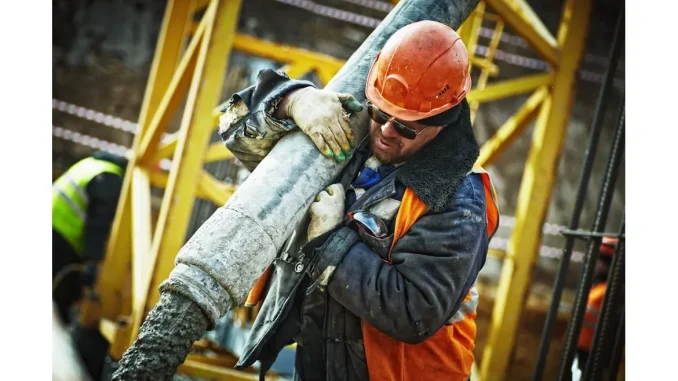
In England, the meticulous oversight of building regulations falls under the jurisdiction of the Department for Communities and Local Government (DCLG). These regulations form the legal foundation for all building activities, outlining the requirements for initiating, conducting, and completing projects. To uphold these standards, Building Control Bodies (BCBs) are instrumental in verifying that construction work complies with the established regulations. This article delves into the evolution, current landscape, and future trajectory of BCBs, highlighting the importance of high standards, education, and adaptability in the face of new challenges.
The role of BCBs in maintaining compliance with building regulations is paramount. These bodies, which can be either Local Authorities or Approved Inspectors, ensure that all construction work adheres to the necessary safety and quality standards. Approved Inspectors, who may be individuals or organisations, are now regulated by CICAIR Limited, a subsidiary of the Construction Industry Council, following a transfer of responsibility in March 2014. This division of responsibilities allows those undertaking building work to choose the most suitable oversight body. To ensure that the competitive landscape between Local Authorities and Approved Inspectors does not compromise the quality of building control functions, the Building Control Performance Standards Advisory Group (BCPSAG) has implemented a set of performance standards. A BCPSAG representative elaborates, “The primary goal is to ensure a consistent and high standard of building control across the board.” These standards serve as benchmarks, ensuring that all BCBs maintain a high level of service and reliability.
In 2002, the introduction of Competent Person Self-Certification Schemes marked a significant advancement in the building control sector. These schemes enable registered installers, who are often small firms or sole traders, to self-certify specific types of building work. This streamlines the process for minor works, ensuring that qualified professionals are accountable for compliance, thereby reducing the administrative burden on both the installers and the BCBs. Complementing these schemes, educational initiatives have been crucial in professionalising the field. In 2019, the Local Authority Building Control (LABC) launched a BSc (Hons) degree in Public Service Building Control Surveying at Wolverhampton University. This programme is designed to equip future building control surveyors with the requisite skills and knowledge to thrive in their roles. According to LABC, “This degree is a significant step towards professionalising the field and ensuring that future surveyors are well-prepared for the challenges ahead.” The initiative underscores the sector’s commitment to continuous improvement and professional development.
The landscape of building control is poised for transformative changes, driven by recent recommendations and legislative proposals. In July 2020, the ‘Future of Building Control Working Group’ published 11 key recommendations aimed at enhancing the profession. These recommendations encompass a broad spectrum, from improving training and qualifications to strengthening oversight and regulation. A pivotal recommendation involves rebranding Approved Inspectors and BCBs as “Registered Building Control Approvers,” reflecting a shift towards more stringent oversight. This rebranding is part of the broader Building Safety Bill introduced in 2020, which proposes substantial changes to enhance safety and accountability within the building sector. This legislative initiative is a direct response to high-profile incidents like the Grenfell Tower fire. A spokesperson for the DCLG asserts, “The proposed changes are about more than just rebranding; they represent a commitment to improving safety and accountability in the industry.”
The building control sector has not been without its challenges. The rapid evolution of new technologies and materials has necessitated continuous adaptation by building control professionals. The rise of sustainable building practices has introduced additional complexities. A senior building control officer notes, “Building control professionals must stay abreast of these changes to ensure that new practices comply with existing regulations.” The COVID-19 pandemic further accelerated the adoption of technology within the sector. Remote inspections and digital submissions have become more prevalent, highlighting the need for robust digital infrastructure. The officer remarks, “The pandemic has forced us to innovate and adapt quickly, and some of these changes are likely here to stay.” The shift to digital solutions represents both a challenge and an opportunity, streamlining processes while requiring significant investment in digital capabilities.
The multifaceted role of BCBs is crucial for ensuring compliance with building regulations and adapting to industry changes. The introduction of Competent Person Schemes and education initiatives like the BSc degree in Public Service Building Control Surveying demonstrate a commitment to professionalising the field. These efforts are vital for maintaining high standards and ensuring public safety. The recommendations from the ‘Future of Building Control Working Group’ and the proposed changes in the Building Safety Bill indicate a shift towards more rigorous oversight and accountability. These changes are poised to have a long-term impact on the industry, improving safety and fostering greater public trust.
Looking ahead, the building control sector is set for significant transformation. The continued adoption of new technologies and sustainable practices will shape the industry’s future. Remote inspections and digital submissions, a trend accelerated by the COVID-19 pandemic, are likely to become standard practice. The implementation of the Building Safety Bill and the recommendations from the working group will play a critical role in shaping the future of building control. These changes promise to enhance safety, accountability, and public trust in the sector. The building control sector is at a pivotal moment, with substantial changes on the horizon. These changes, driven by technological advancements, regulatory reforms, and a commitment to professional development, will shape the future of building control in England for years to come. The sector must continue to adapt and innovate to meet new challenges and ensure compliance with ever-evolving regulations, thereby safeguarding public safety and maintaining high standards in the construction industry.


Be the first to comment